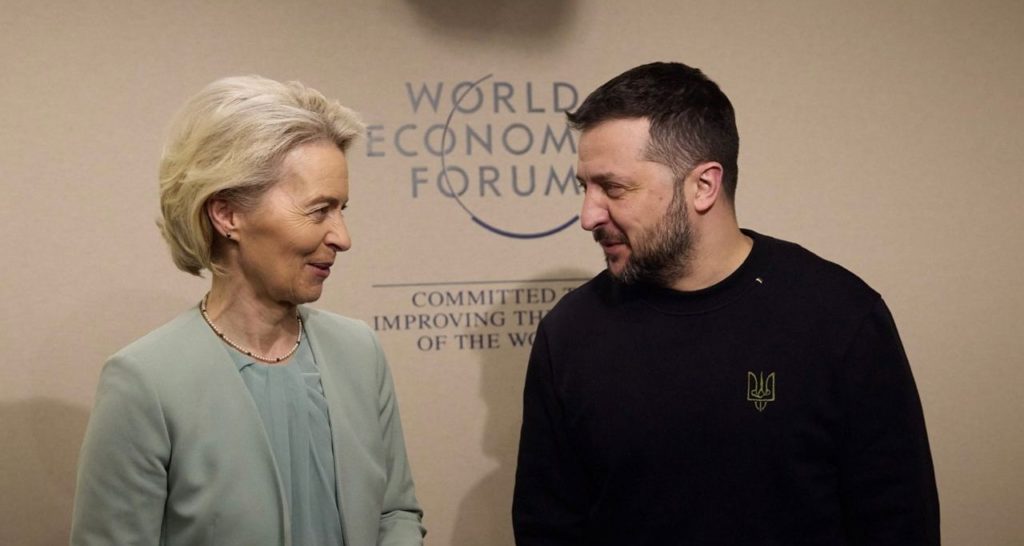Ursula von der Leyen demands Zelesnkyy explain anti-corruption law that sparked nationwide protests

European Commission President Ursula von der Leyen has contacted Ukrainian President Volodymyr Zelenskyy to express “strong concerns” about a newly signed law that restricts the independence of Ukraine’s National Anti-Corruption Bureau (NABU) and Specialized Anti-Corruption Prosecutor’s Office (SAP).
According to RBK-Ukraine and Liga.net, Commission spokesperson Guillaume Mercier told reporters in Brussels that the EU executive is very concerned about the adoption of law №12414, which could significantly weaken the competencies and powers of Ukraine’s anti-corruption bodies.
The spokesperson emphasized that NABU and SAP are considered cornerstones of the rule of law in Ukraine. He added that these institutions are crucial for implementing reforms in the country and must remain independent.
Mercier reminded that respect for the rule of law and the fight against corruption are key elements of the European Union, and Ukraine, as a candidate state for membership, must fully comply with these standards.
“There can be no compromise here,” the Commission spokesperson stressed.
Background
President Volodymyr Zelenskyy signed the controversial law on the evening of 22 July, which limits the independence of NABU and SAP.
The National Anti-Corruption Bureau of Ukraine (NABU) is a Ukrainian law enforcement agency established in 2014 to investigate and expose corruption, particularly among high-ranking officials, and prepare cases for prosecution. It works to prevent, detect, and terminate corruption within its jurisdiction, aiming to clean the government and foster a successful society.
The Specialized Anti-Corruption Prosecutor’s Office (SAPO) is an independent branch within Ukraine’s Prosecutor General’s Office. It oversees and supports corruption investigations started by the National Anti-Corruption Bureau of Ukraine (NABU) and leads prosecution of high-level corruption offenses, especially involving senior officials.
According to MP Anastasia Radina, amendments were added that “make SAP a decorative institution and provide for complete subordination of NABU and SAP activities to the will of the Prosecutor General.”
Protests against the law’s signing took place in several cities, including Kyiv, Lviv, Odesa, Dnipro, Lutsk, Poltava, and Ternopil. Participants called for the law to be vetoed.
Prior to the law’s adoption, massive searches were conducted at NABU and SAP offices. The Security Service of Ukraine (SBU) and the Prosecutor General’s Office announced the exposure of Russian influence on NABU. Individual Bureau employees are accused of state treason, illegal trade with Russia, and corruption in the interests of oligarchs. However, NABU stated that these investigative actions were carried out without court warrants.
